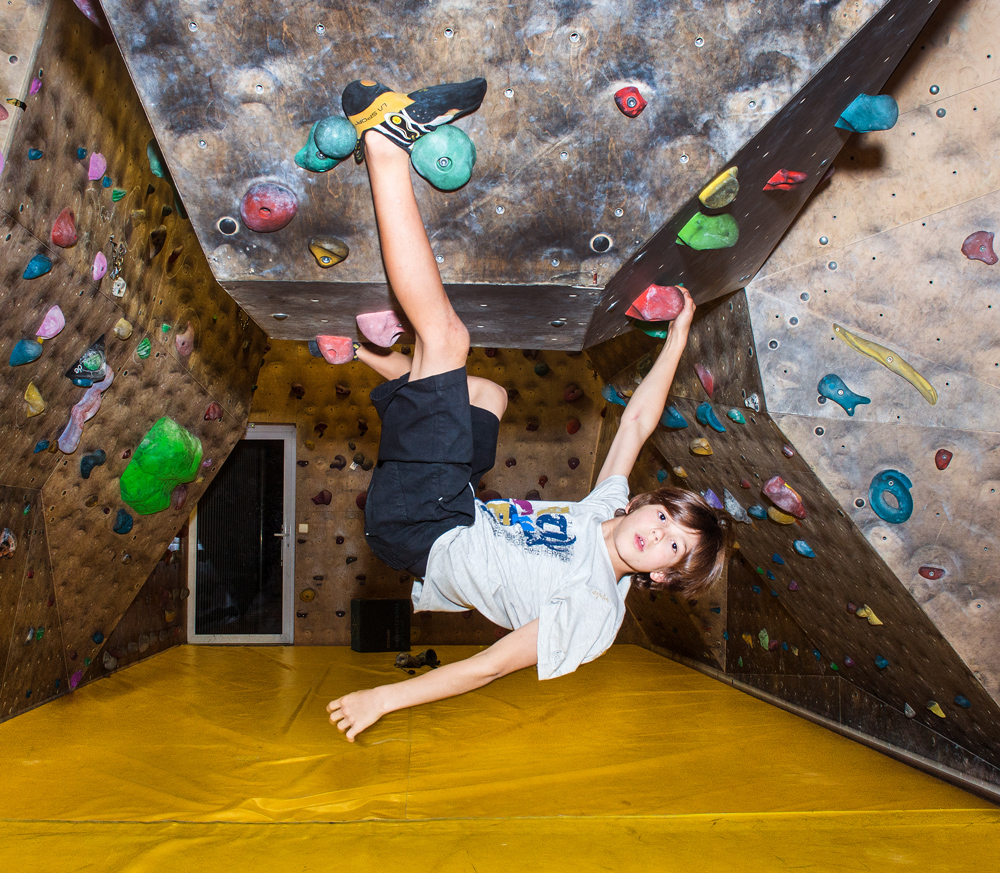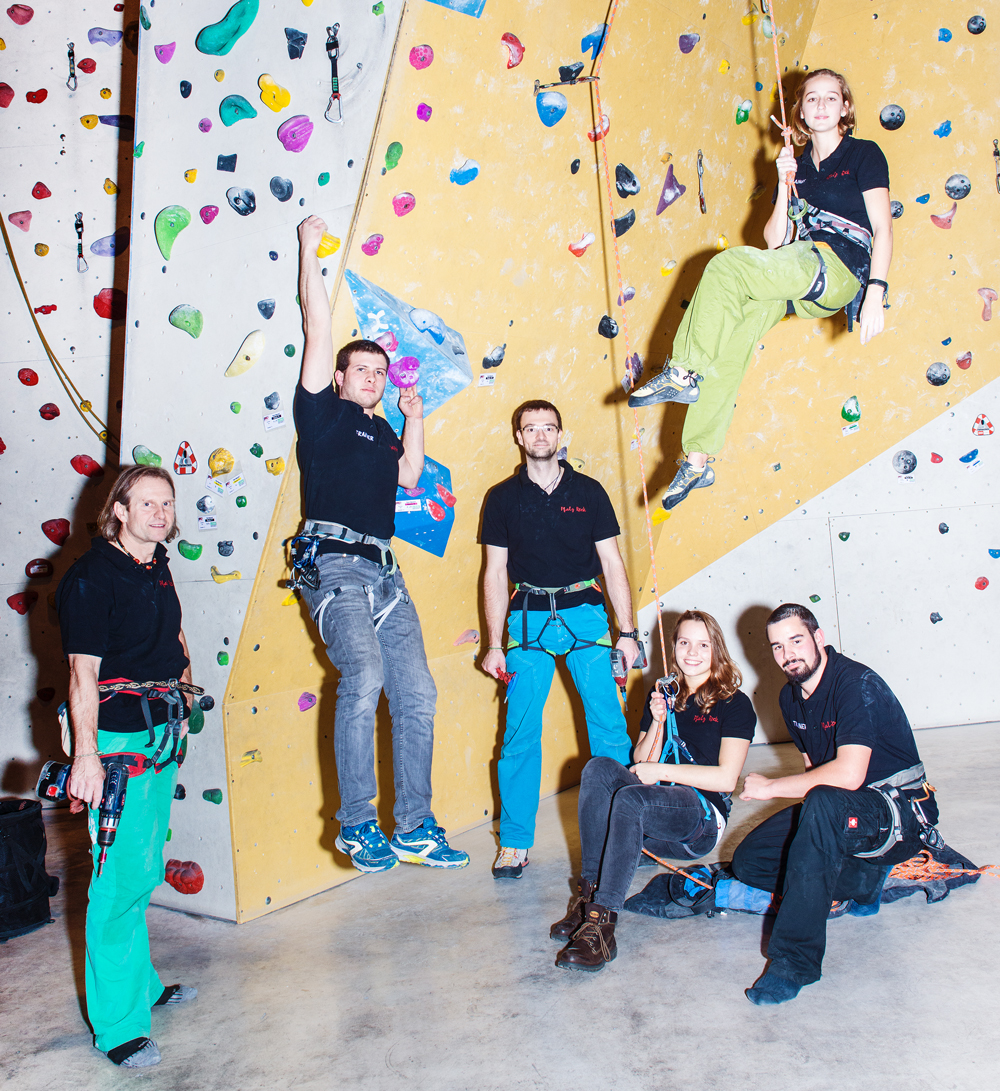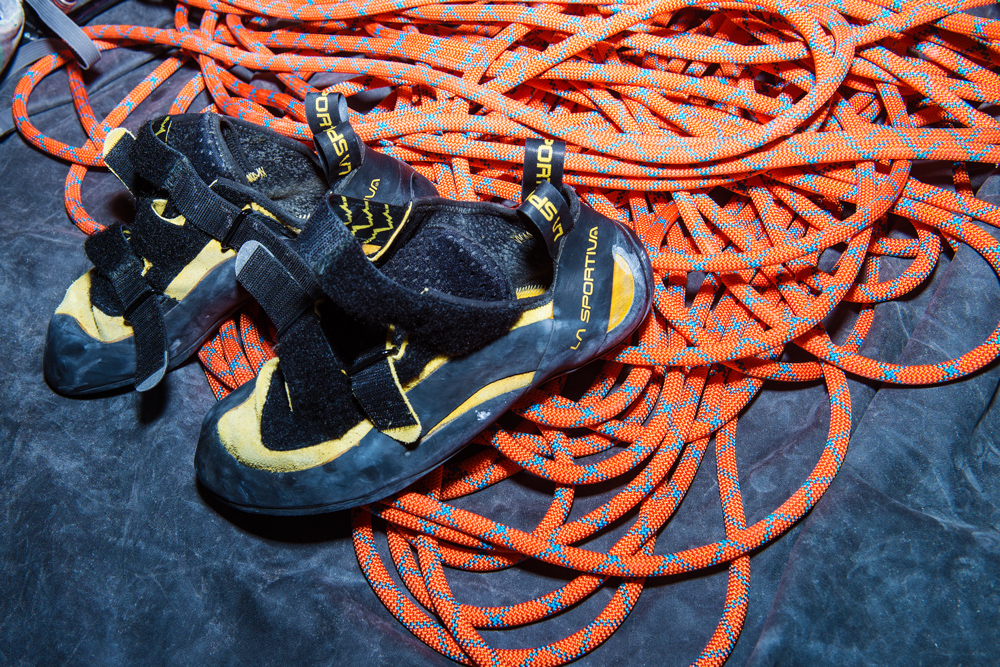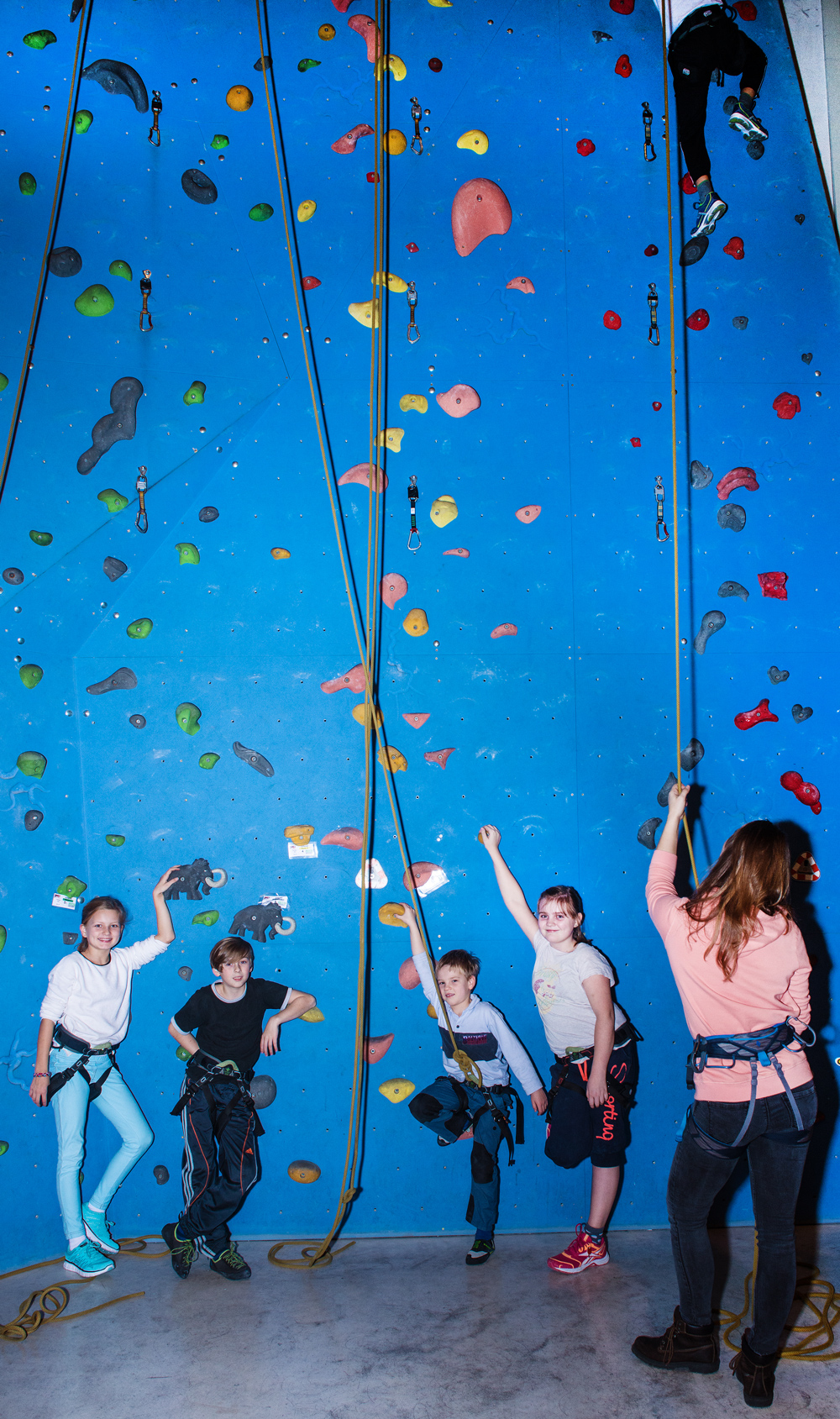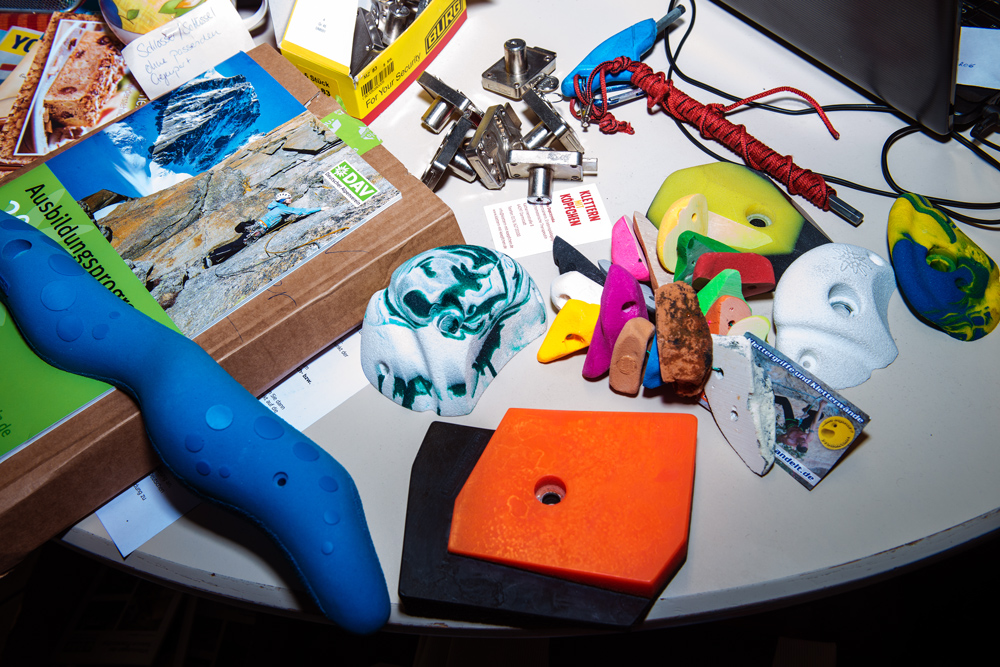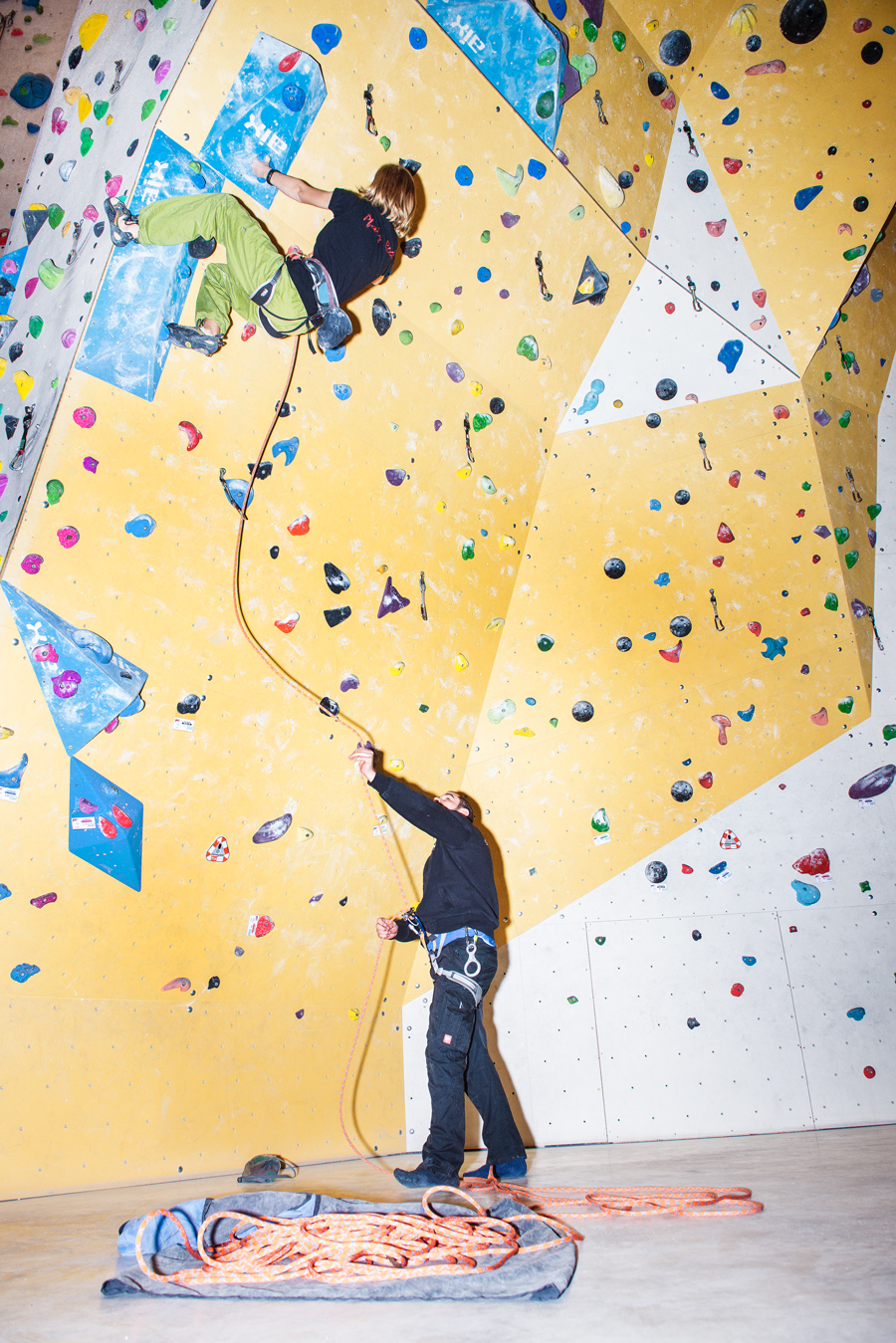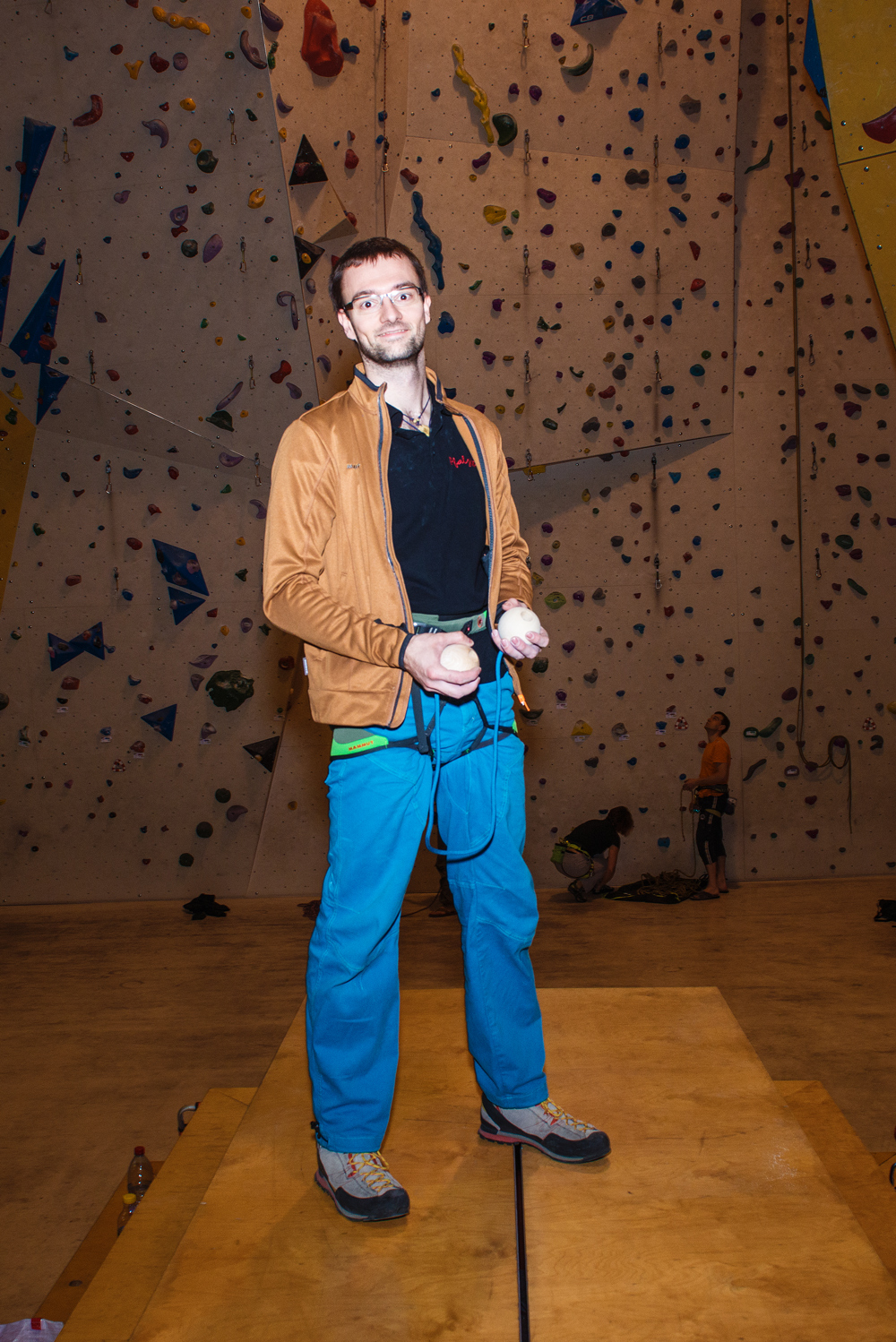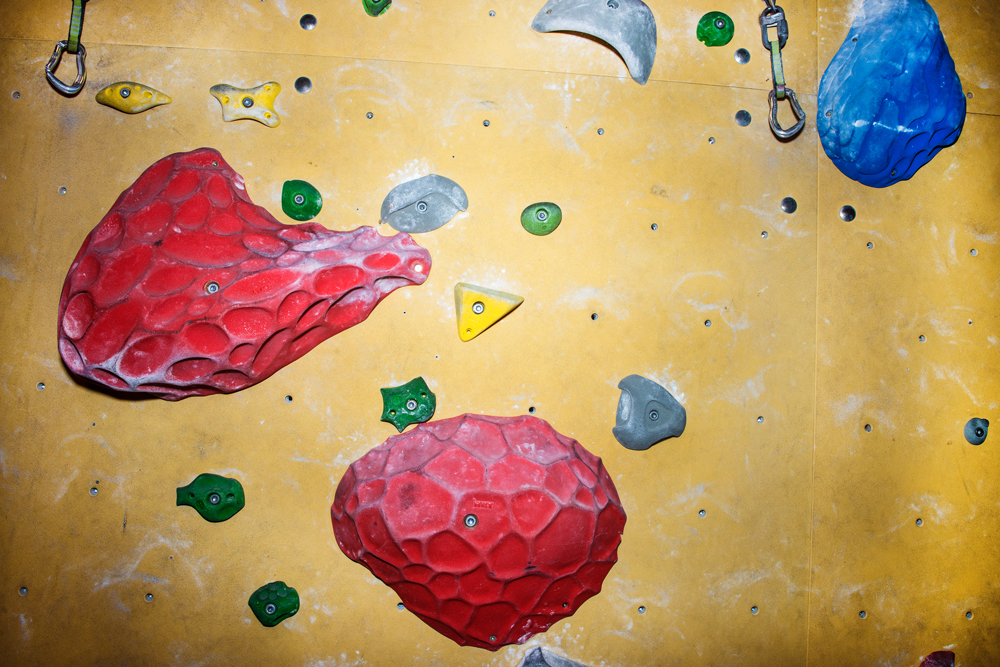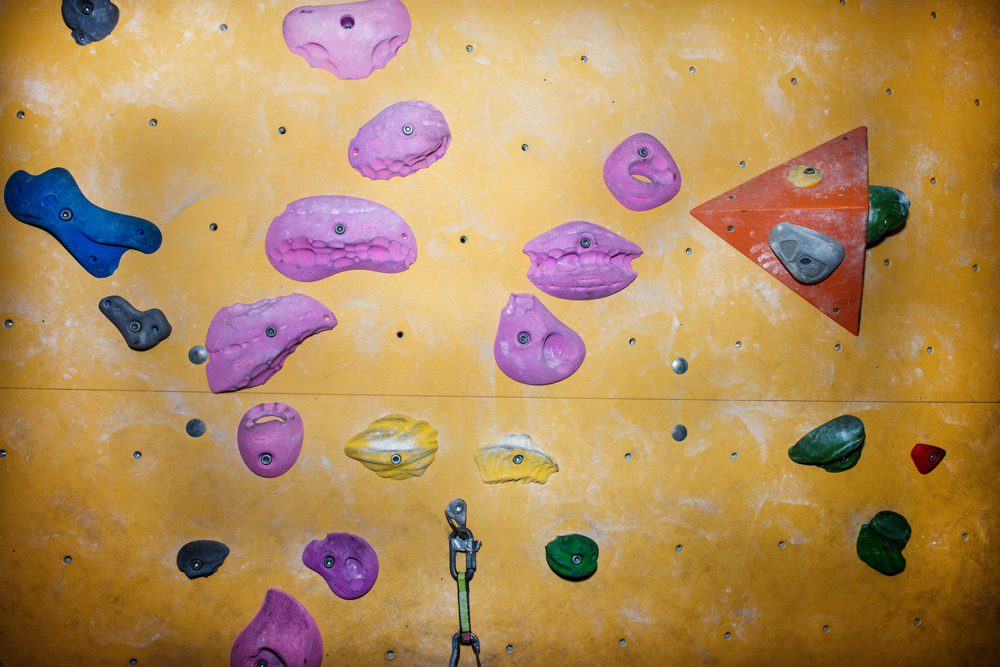The indoor mountain awaits – luring even Swiss rock climbers to the Palatinate town Frankenthal. With its 130 routes ranging from easy to extreme, the indoor climbing centre “Pfalz Rock” (meaning “Palatinate rock”) is a vertical paradise bringing forth exceptional talents like the eleven-year-old Michel Siedler who climbs with the big ones at the top.
15 meters is damn high. Especially when the wall hangs over ferociously and the climbing holds are so small that only the tips of your fingers or toes can grip onto them. This poses no problem for Michel Siedler from the “Pfalz Rock” high-performance training group for kids. Astonishingly fast but with great ease, he climbs even the toughest routes while the grown-ups around him work their way up centimeter by centimeter huffing and puffing.
The pupil from Mannheim comes here to Frankenthal six times a week to do his training. He so successfully overcomes gravity that his name is now being mentioned also outside the rock climbing scene. “I just like becoming better and better together with the others here,” he says modestly, but nonetheless was courageous enough to demonstrate his climbing skills in Kai Pflaume’s television show “Klein gegen Gross” (meaning “Little versus Big”) broadcast by the German TV corporation ARD. On this programme, he competed against his idol, the 26-year-old bouldering world champion Juliane Wurm – probably the best German competitive climber at present – and more than obviously won.
No wonder that his father and coach is as pleased as Punch. Kai Siedler has himself been climbing for three decades and can therefore assess his son’s performance very well. He himself started climbing at a time when pioneers like Wolfgang Güllich from Ludwigshafen or Reinhard Karl from Heidelberg – who was also the first German to reach the top of the Mount Everest in 1978 – revolutionised international sport climbing. In the 1980s, the exceptional climbing talent Güllich added a new athletic dimension to classical rock climbing. A targeted training approach suddenly made routes possible with a grading of up to E11, which the climber from Ludwigshafen cracked for the first time with the legendary route “action directe” in the Franconian Jura in 1991. At the same time, sport climbing emerged into a lifestyle sport with a new ethical code: climbing gear like pitons or slings since then only serve the purpose of securing the rock climber.
